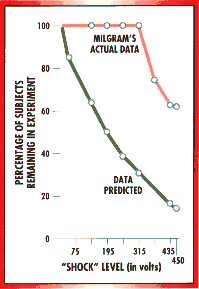 |
Does Science Matter?
|
[Please note one of the people interviewed in this programme
is a policeman who supposedly are reliable witnesses of paranormal
phenomenon.Also note that the adults interviewed were mostly at the side
of a horse racing track,and like as not were betting people.]
Interviewer : Does the Earth go round the Sun?
Child : The Sun goes round the Earth.
Child : The Earth goes round the Sun.
Man : The Sun goes round the Earth.
Man : The Earth goes round the Sun.
Man : The Earth goes round the Sun.Hey chill out!
Man : The Sun goes round the Earth.
Child : The Earth goes round the Sun.
Woman : The Sun goes round the Earth.
Boy : The Sun goes round the Earth.
Man : (laughing incredulously at being asked) The Sun goes round the
Earth.Sorry! The Earth goes round the Sun,for goodness sake!! (Woman giggles
at his confusion)
Lesley Judd : A major survey revealed that as man as 2/3 of the British
public were not aware that our Earth takes a year to go round the Sun.
Policeman : We take 24 hours to go right round.
[Don't you feel safe knowing such ignoramuses are patrolling the streets?
And what about all those "beyond reproach" accounts of police officers? -LB]
Woman : 24 hours.
Boy : It doesn't take 24 hours,it takes....
Boy : A year.
Boy : ...17 hours.
Man : I would say it's a day.
Man : 24 hours usually!
Child : 365 days,366 in a leap year.
Man : 10 times it goes round a year.
Lesley Judd : The survey, carried out by London's imperial college,found
that it's not just planet Earth spinning round the Sun,that causes problems.
Interviewer : What do you think DNA is,have you heard of it?
Girl : Oh is it um...dinosaurs...has it got something to do with
dinosaurs?
Man : DNA? Anything to do with racing?
Boy : Antibiotics cure the viruses.
Man : Antibiotics do kill viruses.
Lesley Judd : The press felt Joe Public's apparent ignorance was a
sensation.
Jane Gregory : (on the phone) Hi this is Jane Gregory from the Public
Understanding of Science....
Lesley Judd : However the people who research science communication
feel the research that shows a so-called "deficit" in knowledge is unhelpful.
Jane Gregory : Books like this one,"Cultural Literacy : What Every
American Needs to Know" by E D Hersh,are an example of the deficit model
of cultural knowledge.This book contains a list,which is called "What literate
Americans know" and it contains things like Nimbus Clouds, Nirvana, Nitrogen
Fixing, Nitrogenous Wastes, Noah and the Flood!
So it's a very broad range of things which apparently "every American needs
to know". Don't know what else I can say about that,I mean it's obviously
bollocks isn't it?
[Note that Jane's use of a term of reference for testicles to pronounce her
disgust is not in itself offensive,since there is nothing wrong with testicles
- 50% of us have them,and as a man I don't take exception to her exploiting
my body parts as a term used to demean the literary list,even though one
might consider that the implication is that associating something with the
male reproductive process necessarily demeans it.It could actually be a
celebration of the list's great reproductive capacity regardless of how socially
beneficial it is. In general the less knowledge you have the less literate
you're likely to be,and whether or not there is a "deficit",the fact is many
people are stumped by scientific terminology or ideas,and in that they should
be informed (see Breaking the Science Barrier),and
aren't - there is a deficit.The essence of this programme tries to sell the
idea that people have their own understanding which is different from,but
just as valid as science,I don't agree. What I do agree with is that people
formulate their own models,which may have peculiar application to their lives
and which may be at odds with science.For example the OAP inversion of the
concept of Heat and Cold - it maybe useful to OAP's but it's actually WRONG.It
is not an alternative that's just as good,even though it's viable in their
lives.It works for them because they are ignorant of how atoms need to be
accommodated into the model.A simpler model thus allows a simpler or wrong
conception which nevertheless may function in lieu of other
information.Similarly,those who think the Sun goes round the Earth,this in
fact is WRONG,no matter what they say,but in terms of getting up the next
morning and expecting daylight it makes little difference.Those that invert
this idea have a "warped reality model" based on observational evidence and
intuitions.This is why one should not trust one's senses,and gain a proper
understanding,which necessitates doing science -LB]
Lesley Judd : The Lab.The public perception of science as
abstract,extracting hard facts,so why not just teach the public these facts.But
in the study of public understanding of science, there are no hard facts.
John Durant : I have a pretty unusual job.I was appointed to be a
Professor of Public Understanding of Science,would you believe? [The public
just believe John,so no problem there! -LB] There's a lot of debate about
what you mean by "public understanding of science".In fact it's been said
that there are only 3 problems with the phrase, the first is public, then
science, and then understanding.
James le Fanu : I mean the world is full of bullshit,and the question
is how you distinguish the bullshit from,you know,the grains of truth, I
suppose,and so that...you know,we couldn't live our lives unless you were
able to do that,and science tells us one very powerful way,I mean there are
others,of being able to do that.
[What other ways? Everything else creates false world models,that's the problem
-LB]
Sue Blackmore : People often think that science is a kind of great
body of knowledge,but that's really not the most important thing about what
science is.It's a method - a way of going about things - the method that
says, "Well hang on,what's this like? How does it work? I'll find out by
going and asking questions,doing experiments and get my answer that way".
[As Jacob Bronowski pointed out in the last "Ascent of Man" all the other
methods create the last Commandment of "Thou shalt not ask why". The "Just
believe" process means that people become Dawkins' "gullible credulity cows"
and do not check that what they believe is actually true.This does not create
another valid truth,but a subjective personal belief,that only has validity
to the person.Science attempts to create what is true REGARDLESS of what
the person wishes to believe,and thus say what the world is like to everyone,that
is why it is NOT just another belief system,that one either accommodates
or not according to one's whims - LB] That's the essence of science,and I
think that's what we need to teach people,not the facts and theories which
change from year to year,decade to decade. [Exactly -LB]
Edgar Jenkins : I think science's rather historical tendency to overstate
it's claims,particularly educational claims,but sometimes economic claims,but
ultimately it cannot sustain,it's overburdened with those responsibilities.So
there is a sense in which I'm arguing for science to be more honest with
itself,because that way I think it's bluff is less likely to be called.
[Why water down the claims of science just so it's bluff won't be called?
If there is any truth in what it says it should be able to prove it's case
IF it's bluff is called,that's the whole point! -LB]
1st Man : No,but I think I should say this,erm about 2 years ago I
was in the veteran's hospital in Westhaven.
2nd Man : Mmm,hmm.
1st Man : And while there they detected a heart condition,it's nothing
serious,but as long as I'm having these shocks,how strong are they? How dangerous
.......?
Lesley Judd : In the post-war era,a gray technicians coat was enough
to make 2/3 of some volunteers obey outrageous demands in a famous American
experiment about obedience.
Predicted and Actual Compliance
|
 |
(Buzzer sounds)
Man : Wrong! 165 volts.Time.
Actor : Uggh!
Man : (worried) Huh!
Actor : Let me out!
Man : (concerned) That guys hollerin' in there.
Lesley Judd : Electric charges were inflicted by the
volunteers,who,entirely unaware their victim was an actor,obeyed the needs
of what they believed was a scientific experiment.
Man : He's got a heart condition there.D'you want me to go?
Mock Scientist : The experiment requires that you continue teacher.
Man : Yeh?! 330 volts.
Actor : (screaming) Arrrrrghh!!
Man : Crrrrrrmp!
Actor : Let me out of here! Let me out of here,my hearts bothering
me.Let me out of here.
Man : (concerned snigger) Hch,hch,hch.
Actor : You've no right to hold me here.
Advert : Even when they're not working,TEFAL scientists never stop....
Lesley Judd : By the early 90s the status of science was apparently
so low that an ad using a technological image to sell household products
was dropped due to a perceived fall in the status of scientists.
Advert : It's brain power like this that invented the TEFAL long-life
tap water steam iron.
Greg Infeld (TEFAL) : During the 80s the perception of scientists
changed,because people felt that they could take decisions themselves,they
didn't feel that a man in a white coat was the right advisor for steam irons.They
had probably been buying 4-5 steam irons in their life. Most consumers know
how to iron,and they know what to look for.They don't regard a man in the
white coat as the right advisor. There was a certain
loss of credibility with the image of the white coats.We tried to counteract
that with placing the brains in an atmosphere at home,wearing sweaters,but
the white coats really stuck to the egg-heads.
Advert : Good news eh?
Lesley Judd : For their part,government and leading scientists,set
up schemes to improve the understanding of science.
[So much for the criticism that scientists haven't done anything to help
the public. The fact is the public have to meet them half way and haven't
done so -LB]
Intro | The Practical Case | The Economic Case | The Democratic Case | The Cultural Case